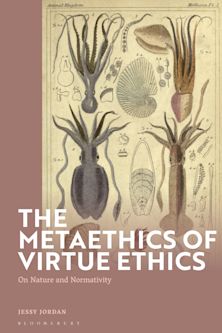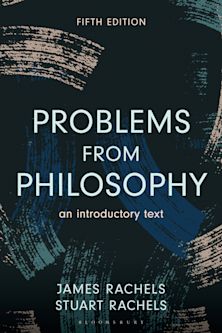Payment for this pre-order will be taken when the item becomes available
This product is usually dispatched within 1 week following the publication date
- Delivery and returns info
-
Free US delivery on orders $35 or over
Description
This groundbreaking book, Moral Philosophy and De-Colonialism: The Irrationality of Oppression, argues that colonialism is fundamentally irrational and incompatible with the public practice of moral philosophy-the reason-based exploration of right choices and good outcomes.
Moral Philosophy allows participants to make their own ethical decisions, which colonialism denies. Drawing on South Asian moral philosophy that colonization renders invisible, Ranganathan argues that all irrationality and oppression stems from interpretation: a confusion of thought with attitudes toward thoughts that imposes perspectives as explanations. Indigenous traditions use explication: explanation in terms of thought itself (not attitudes toward thoughts). The historical origins of interpretation lie in the Linguistic Account of Thought (LAT), which confuses what can be thought with culturally encoded attitudes. Rejected in ancient South Asia and controversial in ancient China but acclaimed in the West (Eurocentric thinking with ancient Greek origins), the West becomes a global colonizing tradition. Its successes-including normative theories of autonomy and freedom-result from colonially appropriating Indigenous capital and epistemic labor. Indigenous thinking follows Linguistic Externalism (LE): thought as the disciplinary use of semantic expression. While LAT promotes anthropocentric, communitarian ethics, LE allows Indigenous people to acknowledge diverse persons including the Earth, treating learning as logic-based inquiry rather than cultural competence. The book explores LAT's basis for genocide and White Supremacy's 2000-year institutionalization of Secularism2 (defining the Western as secular, the BIPOC as religious). It illustrates how originally free people adopt colonization by cooperating with the colonizer, hoping for good outcomes, gambling away procedural justice and explication. Colonization stems not from stated values but from the metaethical choice to interpret, creating a rational obligation to decolonize. Drawing from Western, Chinese, and Indian traditions while making contributions to the philosophies of AI, science, race, reason, religion, language, thought, and translation, this book makes visible the Indigenous foundations of moral philosophy and all inquiry, along with the colonial origins of irrationality.
Table of Contents
Chapter 1. Colonialism and Philosophical Apartheid
Metaethics
Chapter 2. Moral Semantics, Genocide and Indigeneity
Chapter 3, Religion: Two Millennia of the White Supremacist Erasure of Moral Philosophy
Chapter 4. Gatekeeping, Peer Review, and the Normalization of Appropriative Stupidity
Normative Ethics
Chapter 5. Conventional Morality: Good Character, Good Outcomes, Good Rules
Chapter 6. Devotion to the Ideal of the Right: Three Levels of De-Colonization
Applied Ethics
Chapter 7. Applied Ethics and the De-Colonial Politics of Moral Philosophy
Conclusion
Chapter 8. Research and Activism
Product details

| Published | Feb 19 2026 |
|---|---|
| Format | Hardback |
| Edition | 1st |
| Extent | 272 |
| ISBN | 9781350464131 |
| Imprint | Bloomsbury Academic |
| Dimensions | 9 x 5 inches |
| Publisher | Bloomsbury Publishing |



































